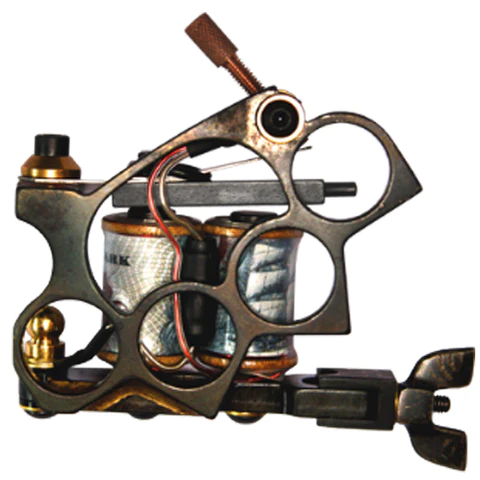The art of tattooing has evolved significantly over the years, and so have the tools and technologies used by tattoo artists. One of the most noteworthy advancements in recent times is the wireless tattoo machine.
These machines
are changing the tattoo industry landscape, offering convenience, versatility,
and improved efficiency. In this article, we will explore the future of
wireless tattoo machines, emphasizing their potential impact on the tattoo
industry.
1. Enhanced Mobility and
Flexibility
Wireless
tattoo machines, also known as wireless pen
machines, are revolutionizing the tattooing process by eliminating the need
for cords and cables. This newfound freedom allows tattoo artists to move
around their workspace more freely, providing them with greater flexibility and
control.
2. Precision and Control
Wireless pen
machines offer tattoo artists unparalleled precision and control. The absence
of cords reduces the restrictions on movement, enabling artists to create
intricate designs with ease. This precision results in cleaner lines and more
detailed artwork.
3. Improved Hygiene and
Safety
Hygiene and
safety have always been top priorities in the tattoo industry. Wireless pen
machines contribute to a more sterile work environment as there are no cords or
wires to potentially tangle with. This reduces the risk of accidents and
ensures a safer tattooing experience for both the artist and the client.
4. Advanced Battery
Technology
The future of wireless
tattoo machines is closely tied to advancements in battery technology.
These machines are becoming more efficient, with longer-lasting batteries that
can handle extended tattooing sessions without the need for frequent
recharging.
5. Customization and
Programmability
Wireless pen
machines are becoming increasingly customizable and programmable. Tattoo
artists can fine-tune settings like needle speed, depth, and stroke length to
suit their individual preferences and the specific needs of each tattoo. This
level of control enables artists to create unique and personalized designs.
6. Connectivity and Digital
Integration
The future of
wireless tattoo machines is likely to include greater connectivity and
integration with digital devices. Artists may be able to control and monitor
their machines through smartphone apps, access design templates, and even
collaborate with clients in real-time on design modifications.
7. Sustainability and
Environmental Impact
As the world
becomes more environmentally conscious, the tattoo industry is also considering
its ecological footprint. Wireless tattoo machines can contribute to
sustainability efforts by reducing the need for disposable cords and cables,
ultimately leading to less waste.
8. Accessibility and Learning
Curve
The adoption
of wireless pen machines may require a learning curve for tattoo artists
accustomed to traditional tattoo needles and ink. However, as the
technology becomes more widespread and user-friendly, it is expected that more
artists will make the transition.
Conclusion
The future of
wireless tattoo machines is promising and poised to transform the tattoo
industry in significant ways. With enhanced mobility, precision, hygiene, and
customization, these machines empower tattoo artists to push the boundaries of
their artistry.

Comments
Post a Comment